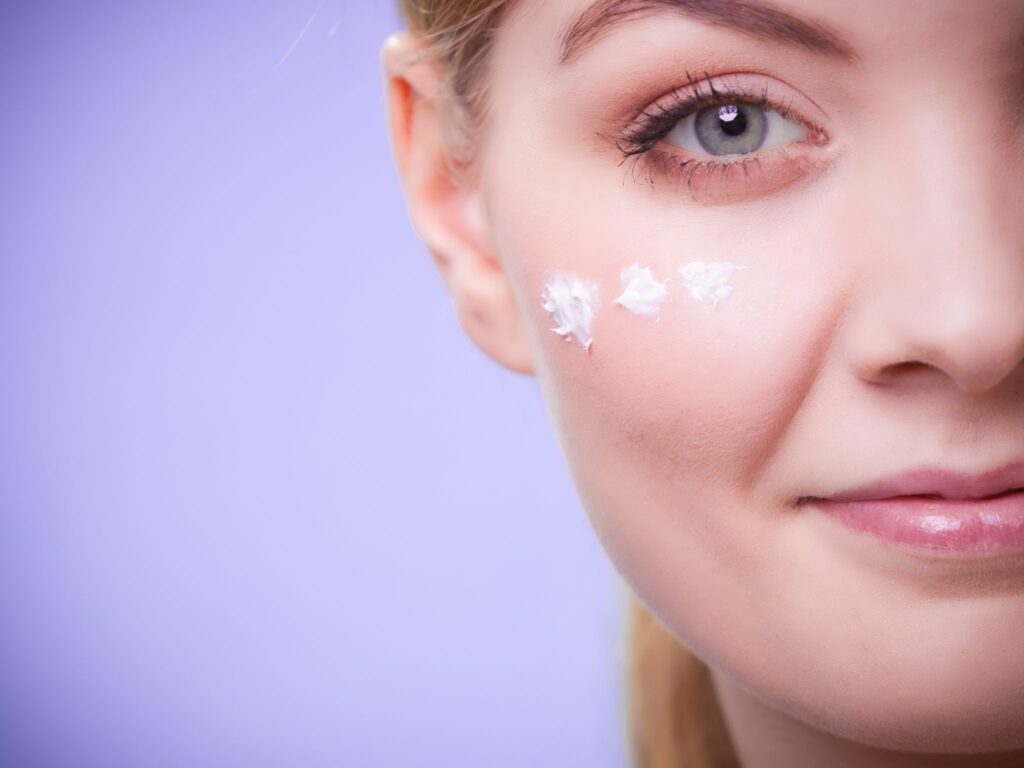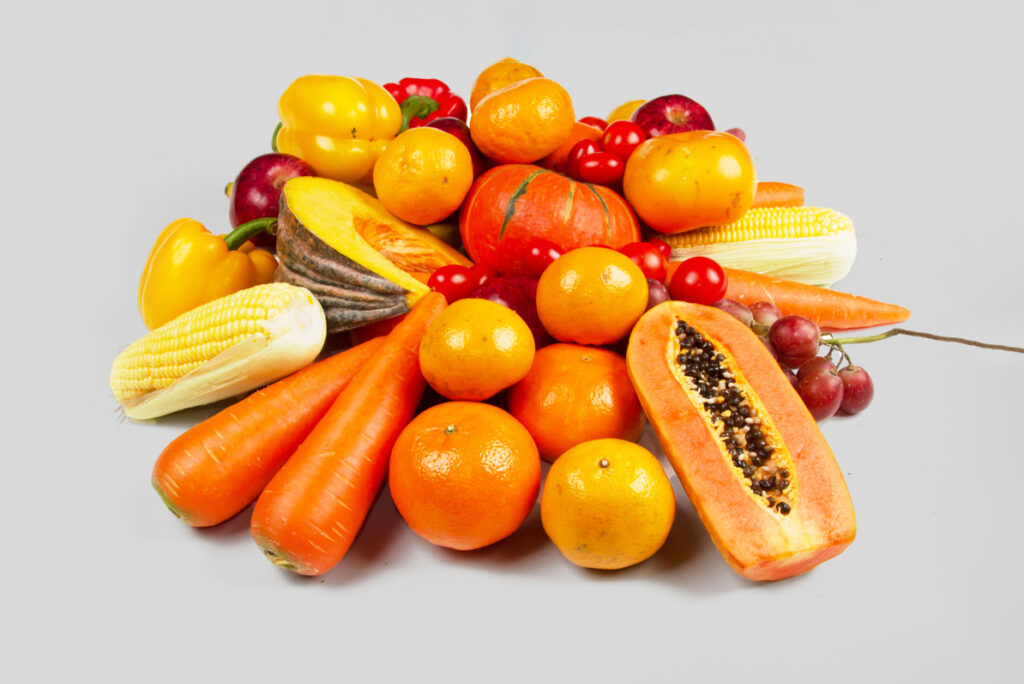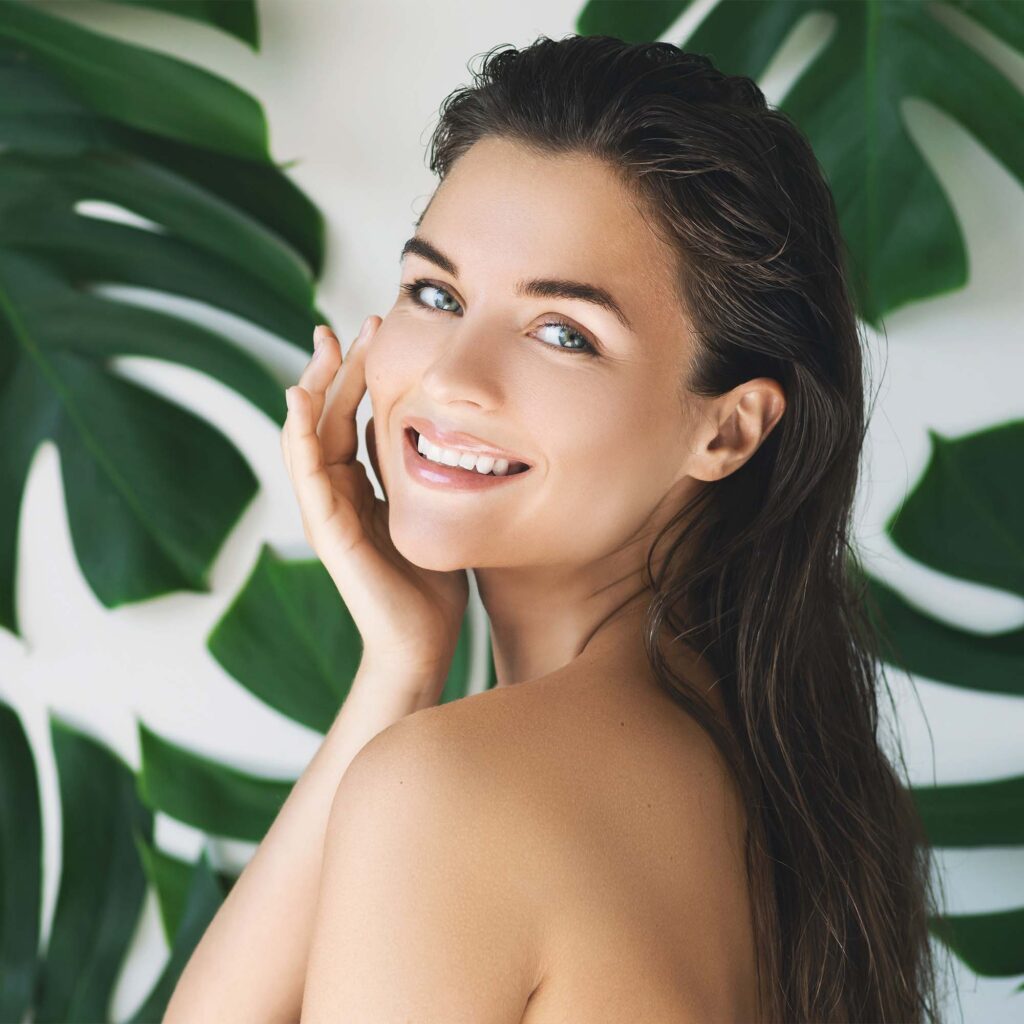Change of season means a change of skincare and nutrition. Here are the must-haves to put in your beauty case (and what to bring to the table).
Every change in climate and eating routine has a reflection on skin quality. The cause is also the rapid cell turnover that immediately shows the state of our facial skin. If we eat poorly, it shows right away. If we drink too little, ditto. If we smoke too much or are stressed, it is hard to disguise, except with make-up. We can actually do a lot for stronger skin at this stage. The right diet, combined with skincare products (with actives we will tell you about), can make all the difference. Here are some helpful tips and, at the bottom, a roundup of suggestions to slip into your beauty bag.
Step 1: hydration (in and out)
“The skin is the largest organ in our body, and obviously, the hydration of the skin will be greatly affected by the hydration of the whole body,” says Dr. Antonella Franceschelli, aesthetic physician and Uniderm consultant. Water performs many vital functions for our body: it is a nutrient, a solvent, a carrier, maintains body volume, and regulates our temperature. Dehydrated skin will appear withered and aged. Observing the moist part of our lips can be a good indication of our body’s general state of hydration.” Hydration has a double meaning in our case. It is therefore a matter of supplying the body with the right amounts – two liters a day, on average. To be avoided, however, are alcoholic beverages, which, if taken in excess, can have a deleterious effect on the skin by reducing its barrier function and increasing pigmentation. On the other hand, there is skincare; here, the solution is to make up the routine with moisturizing creams and serums that are rich in active ingredients capable of retaining water. The star ingredient is always him: hyaluronic acid.

Step 2: A balanced diet regimen
A diet that makes skin stronger-that is, brighter, healthier, and more resistant to external aggression needs the right mix of ingredients and macronutrients. Protein and fat are the perfect allies. “Proteins are fundamental components of skin tissues, and an adequate intake of proteins allows for “building blocks” to make the skin,” says Dr. Franceschelli, “They also serve to repair tissues and carry out physiological skin functions. Regarding the protein portion of the diet, it is therefore good to stick to the gender- and age-specific recommended intake levels of nutrients (LARNs).” What about fats? “Diets too high in fat lead to inflammation of the skin and may increase the incidence of skin cancer following sun exposure. Therefore, it is good to take an adequate share of essential fatty acids, which are essential for skin lipid synthesis andskin metabolism but without exceeding the general fat share of the diet. Omega-3 can be found in high amounts in fatty fish (herring and salmon) but also in cod, trout and oily fish, soybean oil, flaxseed oil, leafy vegetables and nuts, while foods rich in omega-6 are corn oil, sunflower oil, nuts and dried fruits in general (almonds, pistachios, hazelnuts, peanuts).”
The dual role of sugars
ISpeaking of nutrition, one should not overdo it with sugars.”Diets too rich in sugars can increase the share of advanced terminal glycation products AGEs, the presence of which induces skin aging”. As far as skincare is concerned, on the other hand, let us remember that sugar can be a treasure for the skin: incorporated as a cosmetic ingredient, in fact, it possesses extraordinary moisturizing properties, plus it softens, provides moisture and radiance to the skin.

Step 3: vitamins
Vitamins are also essential for healthy skin. Here is a brief overview of the most important vitamins and their functions.
Vitamin C
It strengthens the skin and improves the ability to repair wounds. The foods richest in vitamin C are fresh fruits (the acidic ones, citrus fruits, pineapple, kiwi, strawberries, cherries), fresh vegetables (lettuce, radicchio, spinach, broccoli, cabbage, cauliflower, tomatoes, peppers) and tubers (potatoes especially if new). In skincare, vitamin C represents one of the best allies for repairing, protecting, and improving the appearance of the skin: it tones and firms, making it younger and more elastic, counteracting the action of free radicals and improving collagen production. In addition, it defends against pollution and external aggressions and makes the complexion brighter and more even.
Vitamin A
Vitamin A, or retinol, has antioxidant and protective effects on both the lungs and the cardiovascular system because it fights against cell degeneration from pollution and cholesterol. In addition, it can help eyesight when in the dark because it keeps the cornea in shape. We find it mainly in foods of animal origin, such as liver, milk and its derivatives, and eggs. In contrast, many foods of plant origin contain carotenoids, precursors of vitamin A: red, yellow, and orange fruits and vegetables (apricots, carrots, watermelon, berries, tomatoes). Retinoic acid, a derivative of vitamin A, on the other hand, prevents skin aging by regulating gene expression and metalloproteinases.

Vitamin D
“Vitamin D reduces skin DNA damage, skin inflammation, and sun exposure-induced carcinogenesis. There is little vitamin D present in foods except in artificially fortified foods, but it is produced by our skin as a result of sun exposure.” In cosmetology, vitamin D is used in the form of synthetic analogs and is useful in alleviating inflammatory states, boosting the skin’s defenses, and strengthening its barrier function.
Vitamin E
“It helps prevent skin aging by inhibiting lipid peroxidation. Vitamin E is widely found in foods, especially in oily fruits (such as olives and peanuts) and wheat seeds. It is also found in grains, nuts, and green leafy vegetables.”
Products to put in your beauty case
Now that we’ve given an overview of what to do for stronger skin let’s see what can’t be missed in the fall beauty case. Here are some recommended skincare products:
Collagenil Laboratories Dry & Sensitive Gocce Vitali
Gocce Vitali is a lipid-based treatment with a light texture, specifically formulated to restructure, nourish and elasticize dry and sensitive skin.
Collagenil Laboratories Oleoactive Night Defence.
A night detox formulation, it is indicated for very dry and dehydrated skin. It is a multi-active treatment with five actions: purifying, detoxifying, rehydrating, emollient and brightening.
